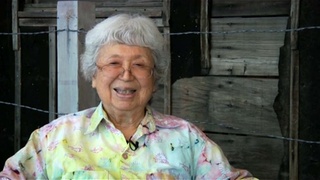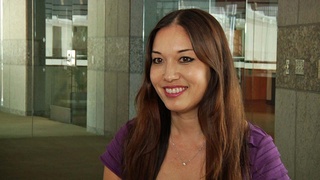Interviews
The Hapa Project
The Hapa Project is an idea I came up with about 10 years ago of photographing people that may have gone through similar situations that I went through. And it was a project that I wanted to go about to see if I could try and find a place where I could have a bit more of a home. It started out kind of selfish in that way. I wanted a thing where I wanted to find people like me. And I thought about how to do it for a long time because I’d been making films and I’ve written another book about these subjects, and I thought, how would it be to actually take this question, “What are you?” which we get all the time, and actually put it back in the power of the people that are answering. And let them answer in their own way—not in just their own words but in their own handwriting.
And so I basically came up with the idea of photographing people who are Hapa—which is a slang word to begin with, which can be defined in many ways—photographing them from just straight up, collarbone up, no jewelry, no clothing, no make-up, no expression, just the way you are. Because we live in a world where we have to prove we are who we are all the time. We have driver’s licenses, and passports, and student i.d.’s, and I can’t get anywhere on campus without proving I really am who I am. And so we have these pictures that prove it, and I thought, well, let’s let people have the power to do this. Come here, we’ll take a picture, you pick the one you like, you write your response to the question “What are you?” and we’ll go from there. And it became a larger exhibition and a book.
Date: May 3, 2006
Location: California, US
Interviewer: Jim Bower
Contributed by: Watase Media Arts Center, Japanese American National Museum.
Explore More Videos





Marriage during anti-miscegenation laws
(b. 1930) Half Japanese and grew up in both Japan and the United States.

Growing Up in Japan
(b. 1930) Half Japanese and grew up in both Japan and the United States.

Postwar school-life
(b. 1930) Half Japanese and grew up in both Japan and the United States.

On Challenging Institutions
(1938-2020) Japanese American attorney and civil rights activist

Photographing the movement
(1941-2018) Japanese Canadian photojournalist and activist

Pop and Balls
(1938-2020) Japanese American attorney and civil rights activist

Re-examining Identity
(1941-2018) Japanese Canadian photojournalist and activist

Fitting in to both sides of her family
Jewish Japanese American journalist


Culture is an important part of one's identity
Jewish Japanese American journalist

